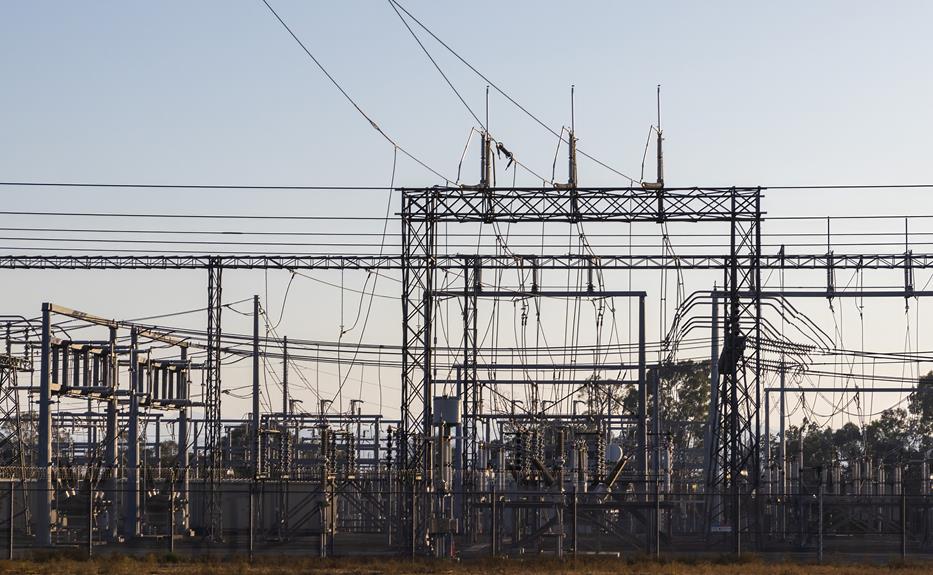Power Boost: The Advantages of Methanol Injection Kits
For those desiring liberation from mediocre engine performance, behold the power of methanol injection kits. This technical expose unravels the intricate workings of methanol's role in engine performance, its thermal benefits, installation processes and cost-effectiveness. Dispelling misconceptions, presenting real-world applications, and guiding on maintenance, this analytical piece illuminates how methanol injection can turbocharge your vehicle's horsepower, providing a much-needed power boost. Welcome to the revolution in engine performance enhancement.
Key Takeaways
- Methanol injection kits cool the intake air, resulting in a more potent air-fuel mixture and improved combustion, generating more power.
- Methanol injection increases horsepower by cooling the air intake and making it denser, and by releasing more energy during combustion compared to gasoline.
- Methanol injection provides significant thermal benefits, helping to maintain optimal engine temperature, reducing the risk of overheating and engine-damaging detonation.
- Methanol injection kits are cost-effective compared to other engine performance enhancements, require minimal maintenance, and offer a significant power boost without major engine modifications.
Understanding the Basics of Methanol Injection Kits
Before delving into the advantages of methanol injection kits, it is crucial to first comprehend the basic principles and operations of these systems. A methanol injection kit is a performance-enhancing system designed to cool the intake air using methanol injection. This cooling process increases the density of the intake air, resulting in a more potent air-fuel mixture, thus improving combustion and generating more power.
The system primarily consists of a methanol tank, pump, injection nozzle, and a control unit. The methanol is stored in the tank, and under forced induction, the pump injects it into the intake air stream. The control unit regulates the amount of methanol injected based on parameters such as intake air temperature and engine load.
Methanol injection is particularly beneficial in forced induction systems, including turbocharged and supercharged engines, where it helps to mitigate the adverse effects of heat produced by increased boost pressure. By reducing the intake air temperature, methanol injection effectively prevents detonation, enabling the engine to operate safely at higher boost levels and advance ignition timing for increased performance.
The Role of Methanol in Engine Performance
Consistently, methanol plays a critical role in enhancing engine performance by increasing the density of the intake air, thus improving combustion and power output. This potent substance, when properly harnessed, can transform your vehicle into a high-performance machine.
As the methanol is injected into the intake manifold, it vaporizes, cooling the intake charge and creating more power. This is where the performance intercooler comes into play. It further cools the already dense air, providing an even greater power boost.
The use of performance intercooler piping is equally crucial. This component ensures the efficient delivery of the methanol-air mixture to the combustion chamber, maximizing the performance gains.
Here's what this means for you:
- *Freedom*: Unlock the full potential of your vehicle, breaking free from the constraints of standard engine performance.
- *Control*: Decide when you need that extra power, giving you complete control over your driving experience.
- *Exhilaration*: Experience the thrill of boosted performance, providing an adrenaline rush like no other.
In essence, methanol injection kits, particularly when complemented with a performance intercooler and appropriate piping, can significantly enhance engine performance, offering liberation from the average and an entry into the extraordinary.
Power Boost: How Methanol Injection Increases Horsepower
Methanol injection is a power augmentation technique that directly impacts the horsepower of an engine. To understand the horsepower increase, it is crucial to first comprehend the mechanics involved in methanol injection. From here, we can methodically explore the relationship between this process and its resultant effect on horsepower.
Methanol Injection Mechanics
Understanding the mechanics of methanol injection and its role in boosting horsepower requires an exploration of the three key stages involved in the process: air intake, combustion, and exhaust.
- Air intake: Methanol is sprayed into the air intake where it evaporates, cooling the air and making it denser. This increases the amount of oxygen available for combustion, enabling more fuel to be burnt and thus increasing power.
- Combustion: The methanol itself also combusts, releasing more energy than the same volume of gasoline, further boosting horsepower.
- Exhaust: The combustion of methanol produces fewer harmful emissions than gasoline, making it a cleaner option.
In essence, methanol injection liberates your engine's potential, offering a significant power boost while also contributing to a cleaner environment.
Horsepower Increase Explanation
Drawing upon the mechanics previously discussed, we will now delve into the specifics of how methanol injection ramps up horsepower, and explore why this modification can substantially enhance the performance of your vehicle. The methanol, a high-octane fuel, is sprayed into the intake manifold where it evaporates, cooling the intake charge. This cooling effect reduces the engine's tendency to knock, allowing for higher compression ratios or more boost pressure, which directly translates to increased horsepower. Simultaneously, methanol's inherent combustible nature contributes to a more efficient combustion process, further augmenting engine power output. Therefore, the implementation of a methanol injection system can liberate the hidden potential of an engine, offering a significant upgrade in terms of power and performance.
Cooling Effects: The Thermal Benefits of Methanol Injection
The thermal benefits of methanol injection systems are significant, particularly in terms of thermal management and combustion temperature reduction. These systems introduce an efficient cooling mechanism that helps maintain optimal engine temperature, mitigating the risk of overheating. Consequently, this leads to improved engine performance and longevity, underscoring the importance of methanol injection for optimal thermal regulation.
Methanol Injection: Thermal Management
In the realm of thermal management, methanol injection offers significant cooling benefits, primarily due to its unique capability for absorbing heat from the intake charge. This process results in a denser, cooler air-fuel mixture, which enhances combustion efficiency and power output.
- The cooler intake charge reduces the risk of engine-damaging detonation, allowing for increased ignition timing and higher compression ratios.
- The evaporative cooling effect of methanol lowers the intake air temperature, which contributes to improved volumetric efficiency.
- The thermal benefits of methanol injection extend to reducing heat stress on engine components, lengthening their lifespan.
These points underscore methanol injection's crucial role in thermal management, promising a sustained, efficient, and powerful performance.
Lower Combustion Temperatures
Beyond its role in thermal management, methanol injection also contributes to lower combustion temperatures, thereby enhancing engine performance and durability. Methanol, when introduced into the intake air stream, vaporizes, absorbing substantial heat in the process. This cooling effect significantly reduces the intake air temperature, leading to a denser charge. The denser air-fuel mixture improves combustion efficiency, resulting in a more potent power output and reduced engine-damaging detonation likelihood. Additionally, methanol's high latent heat of vaporization offers a superior cooling effect compared to other substances. This cooling action not only optimizes the engine's thermodynamic efficiency but also extends its lifespan by reducing thermal stress. This cooling capacity of methanol injection effectively sets the stage for our next discussion on preventing engine overheating.
Preventing Engine Overheating
Utilizing methanol injection kits plays a crucial role in preventing engine overheating thanks to the profound cooling effects it offers. Methanol, with its high latent heat of vaporization, reduces intake temperatures and subsequently, combustion temperatures. This leads to a significant decrease in the likelihood of harmful detonation.
- Methanol's superior cooling properties can offer you peace of mind, knowing your engine is operating within safe thermal limits.
- The resulting lower combustion temperatures can liberate your engine from performance-robbing heat stress, maximizing its potential.
- By preventing overheating, you are not just protecting your investment but also freeing yourself from the worry of unexpected engine failure.
In essence, methanol injection kits don't just boost power; they provide thermal benefits, protecting and liberating your engine.
Installation Process: Setting Up Your Methanol Injection Kit
Before you can reap the benefits of a methanol injection kit, understanding the installation process is fundamental. This process involves a series of steps that need careful execution to ensure optimal performance and longevity of the system.
Initially, you must identify the ideal location for the methanol tank, which should be accessible for refills and maintenance. Next, the injection nozzle needs to be mounted, typically in the intake tract, post-intercooler. The positioning here ensures proper atomization and distribution of the methanol.
Afterward, the pump must be installed, preferably in a cool and dry location to avoid overheating and potential damage. Once the pump is secured, connect it to the tank with a provision for a filter in between to prevent debris from entering the system.
The electronic control unit (ECU) comes next, which manages and monitors the system's function. The ECU should be mounted within reach of all the wiring connections, including the pump, solenoid, and throttle position sensor.
Cost-Benefit Analysis: Is a Methanol Injection Kit Worth It
Frequently, potential users of methanol injection kits question whether the benefits of these systems outweigh their costs. A detailed cost-benefit analysis is crucial for understanding the real value behind this technology.
To gain a clear perspective, let's consider the following:
- Methanol injection kits are known to increase fuel economy, which translates to significant savings in the long run.
- They can enhance engine performance, resulting in increased speed and power, which in turn, can significantly elevate your driving experience.
- They also contribute to the longevity of the engine, reducing maintenance costs over time.
From a technical standpoint, the initial investment in a methanol injection kit can indeed be substantial. However, when you consider the cumulative financial benefits and the enhanced driving liberation, the cost becomes a worthwhile investment.
The key to making an informed decision lies in understanding these benefits in relation to the costs. It is crucial to analyze the long-term savings in fuel economy, the improvement in engine performance, and the reduction in maintenance costs before making a decision.
As we delve deeper into this topic, it is essential to debunk some common misconceptions about methanol injection kits.
Common Misconceptions About Methanol Injection Kits
Often, misconceptions about methanol injection kits arise, and it's crucial to dispel these myths to fully appreciate the benefits of this technology. Methanol injection kits aren't harmful to engines, rather they protect and enhance engine performance. Additionally, they aren't just for race cars or high-performance vehicles; everyday automobiles can significantly benefit from their use.
To clarify the most common misconceptions, let's consider the following table:
| Misconception | Truth | Impact |
|---|---|---|
| Damages engine | Protects engine | Enhances performance |
| Only for race cars | Beneficial for all vehicles | Broadens applicability |
| Difficult to install | Many kits offer easy installation | Increases accessibility |
| Expensive to maintain | Costs are offset by increased efficiency | Ensures cost-effectiveness |
This table clearly debunks common myths, highlighting the fact that methanol injection kits are not only safe for engines but also enhance their performance. They are not limited to high-performance vehicles and can be easily installed in any car. Furthermore, while there are costs associated with their maintenance, the increased efficiency and performance they provide significantly offset these expenses.
Case Study: Real-World Applications of Methanol Injection
To provide concrete evidence of the benefits of methanol injection kits, let's examine their implementation in real-world scenarios, illustrating both the performance enhancement and the cost-efficiency they offer.
Consider the case of a performance car enthusiast who installed a methanol injection kit in his turbocharged vehicle. Post-installation, the car showed a remarkable increase in horsepower and torque, demonstrating the kit's ability to enhance performance. More than that, it also resulted in improved fuel efficiency, displaying its cost-effectiveness.
- With the methanol injection kit, the car's performance was significantly boosted, evoking a sense of exhilaration and freedom in the driver.
- The improved fuel efficiency meant less frequent trips to the gas station, giving the driver more time to enjoy the open road.
- The cost savings from the increased efficiency provided the driver with a sense of liberation, freeing up funds for other performance-enhancing modifications.
In-depth analysis of these real-world applications clearly show that methanol injection kits not only improve performance but also offer cost advantages. The next section will delve into 'maintenance and troubleshooting: keeping your methanol injection kit in top shape', ensuring you can reap these benefits for a long time.
Maintenance and Troubleshooting: Keeping Your Methanol Injection Kit in Top Shape
In light of the remarkable benefits offered by methanol injection kits, maintaining and troubleshooting these systems is crucial for ensuring their optimal performance over an extended period. Like any mechanical system, these kits demand periodic inspection and routine maintenance. Failure to do so can result in reduced performance, and in worst cases, complete system failure.
The most common issues include leaks, clogs, and electronic malfunctions. Regularly checking your system's hoses, fittings, and nozzles can prevent leaks and clogs, while a systematic evaluation of the electronic components can help catch any malfunctions early.
To further clarify the main aspects, consider the following table:
| Maintenance Task | Impact |
|---|---|
| Regular inspection of hoses, fittings, & nozzles | Prevents leaks and clogs |
| Systematic evaluation of electronics | Detects malfunctions early |
| Replacing worn-out parts | Ensures optimal performance |
| Regular cleaning of the system | Enhances longevity |
| Use of high-quality methanol | Prevents damage to the system |
Frequently Asked Questions
What Are the Potential Environmental Impacts of Using a Methanol Injection Kit?
Methanol injection kits may potentially reduce carbon emissions by enhancing fuel efficiency. However, methanol production can generate greenhouse gases, and improper disposal of spent methanol can harm aquatic ecosystems.
Can Methanol Injection Kits Be Used on All Types of Engines or Are There Specific Models They Are Most Compatible With?
Methanol injection kits can be used on a variety of engine types, however, they are most compatible with forced induction engines (turbocharged or supercharged) due to their ability to handle increased power output.
Are There Any Safety Concerns Associated With the Use of Methanol Injection Kits?
While methanol injection kits can be a game changer, safety concerns do exist. Risks include methanol exposure and inhalation, potential engine damage if improperly installed, and possible fire hazards due to methanol's flammable nature.
How Often Does a Methanol Injection Kit Need to Be Refilled?
The frequency of refilling a methanol injection kit depends on usage intensity. Under high-performance conditions, it may require refilling every 500-1000 miles. Regular monitoring ensures optimal functioning and prevents potential system damage.
Is It Possible to Install a Methanol Injection Kit on My Own or Would I Need Professional Assistance?
Installing a methanol injection kit independently is possible with mechanical knowledge. However, professional assistance ensures correct installation and optimal performance, minimizing potential damages and maximizing safety and efficiency of your vehicle's system.
Conclusion
In conclusion, methanol injection kits offer significant advantages, including enhanced engine performance and thermal benefits, contributing to increased horsepower. While the installation process requires precision, the cost-benefit analysis typically justifies the investment. Despite common misconceptions, real-world applications demonstrate the effectiveness of these kits. Proper maintenance and troubleshooting ensure optimal operation, solidifying methanol injection kits as a valuable asset in power-boosting automotive performance.







